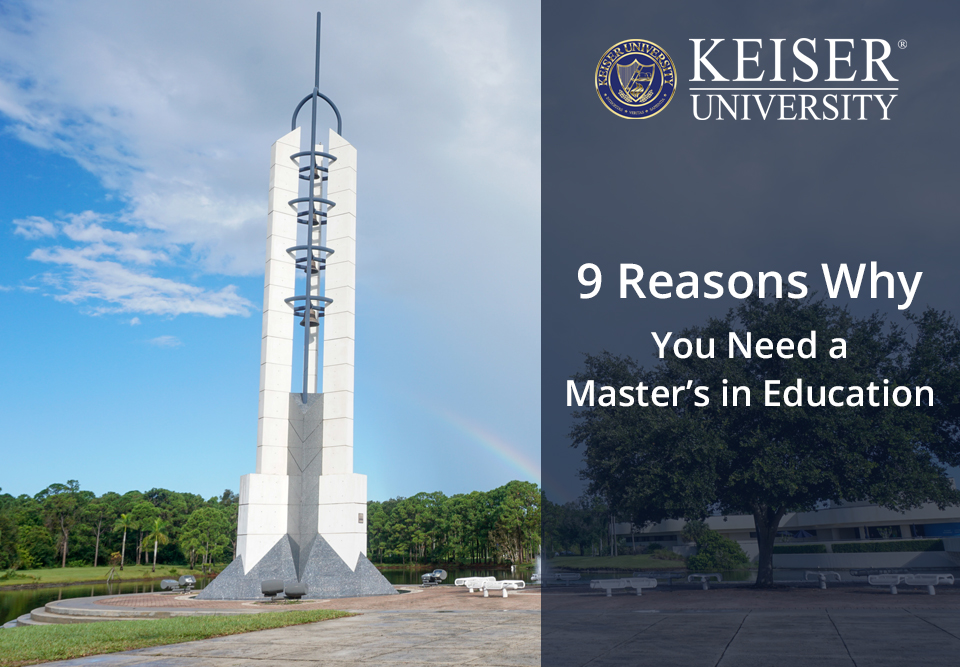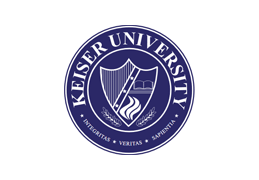The demand for experienced, competent teachers is at an all-time high, but so are the demands placed upon teachers today. Not only are students coming to the classroom fighting a growing number of emotional and educational battles, but districts are applying pressure to incorporate technology in the classroom and improve test scores. For many teachers, the knowledge gained in their undergraduate program only touches on all they will need to know. A master’s degree in education could be exactly what a teacher needs to give them a competitive edge and increase their effectiveness in the classroom.
What Is a Master’s in Education?
A master’s in education is an advanced degree in education. It takes a teacher beyond the standard skills learned in an undergraduate degree and moves into additional knowledge of education theory, effective educational concepts and the best ways to reach students. Some master’s degrees tackle leadership training, while others focus on educational technology. By delving into these topics more deeply than is possible in an undergraduate degree, a master’s degree creates more effective, better-educated teachers and leaders.
Why Get a Master’s in Education
There are many reasons to consider getting a master’s in education. Broadly speaking, it opens the door to more employment options and makes teachers more effective. More specific reasons why pursuing a master’s in education could be a wise move for your career goals include:
1. Level Up Existing Knowledge
As an educator, you already know the value of learning and knowledge. By earning your master’s degree, you can “level up” on your existing knowledge. Add new tools, teaching skills and techniques to your instructional arsenal, and develop a better understanding of how students learn.
As an added bonus, a master’s degree helps you fulfill your educational requirements to keep your teaching license valid. You need to take continuing education to remain in the classroom in most public school districts and an advanced degree is an ideal way to meet those requirements while expanding your career possibilities.
2. Grow as a Leader or Administrator
If you are an experienced teacher, you are likely already a leader in your school. Grow in that regard and position yourself to take on a leadership role. A master’s in education will qualify you for administrative and leadership opportunities.
If you are ready for a change, stepping into leadership can bring greater income potential and a way to get out of the classroom while remaining in the education field. Both can be positive career moves, depending on your long- and short-term goals.
3. Specialize & Learn New Skills
Another perk of getting your master’s in education is the ability to specialize. You can focus on a particular area that is a weakness or branch into a new field that better fits your career goals, like educational leadership, special education, or technology. The key is to find a school that offers a range of specializations as part of its graduate-level education programs.
At Keiser University, you have a number of specialties to consider. These include:
- Master of Education in Allied Health – This program trains healthcare providers to be educators in their field. This is the specialization to consider if you have a passion for the healthcare industry and want to teach the next generation.
- Master of Science in Education, Instructional Design and Technology – Proper utilization of technology can make education even more effective, and this master’s program teaches educators how to use instructional design principles to create effective educational experiences that merge technology with learning. After graduation, teachers will be equipped to create more meaningful educational experiences using technology.
- Master of Science in Educational Leadership – This degree field trains the administrators and leaders of tomorrow’s schools. If you are considering making the move into a school administrator position, this degree will set the foundation.
- Master of Science in Education, Teaching and Learning – This degree focuses on making teachers better at their jobs and is ideal for those who want to stay in the classroom and become more effective.
Consider your career goals and learn skills within a specialization that will help you advance those goals.
4. Build Credibility
Being a teacher gives you a measure of credibility, but when you earn a master’s degree, your credibility increases substantially. Your ideas about everything from lesson plan outcomes to curriculum choice hold more weight with parents, administrators and peers.
When you have credibility, your job becomes easier. You are able to assert your opinion about policy changes and have it heard. You have the respect and cooperation of parents, which makes it easier to teach their students.
5. Reimbursement Programs
Sometimes school districts face shortages of teachers in specialty areas. When that happens, they may offer tuition reimbursement options for teachers willing to get a master’s degree in that field. This can help you pay for your advanced degree so that you can become a more effective teacher without a high cost. Ask if any tuition assistance programs are available in your district.
6. Increase Income Potential
School districts typically structure their salary schedules to reward teachers for experience and additional education. Earning a master’s degree will increase your earning potential. According to the National Center for Education Statistics, teachers with a master’s degree earn between $4,000 and $5,000 more a year than teachers with just a bachelor’s degree. If the teacher becomes an education specialist after their master’s program, they can earn as much as $10,000 more than someone with a bachelor’s degree alone.
7. Build Your Resume
A master’s degree looks excellent on a resume. The world of education can be highly competitive, depending on where you are looking to teach. The more experience and education you can add to your resume, the better your chances of finding a good job. Even if you are not looking to change schools or districts now, you may need to in the future. Having a master’s degree will make you a more appealing candidate, particularly in fields that need leadership skills or specialization.
8. Transition to Corporate or Nonprofit Spaces
The importance of education and teaching goes far beyond children in school. Teachers and educators can transition into the business or nonprofit world with the correct education, experience, or opportunity. A program like Keiser’s MSEd in Instructional Design & Technology will help you translate your foundation in education into corporate training or team skill-building. You’ll also gain new theoretical and practical skills for instructional design with innovative technology. If you’re looking to change your career setting, a master’s degree in education may be the way to deepen your knowledge while broadening your options.
9. Continue to Make a Difference
Whether you take your training out of the schools and into another field or you continue to teach with greater effectiveness, additional education will allow you to continue making a difference. If you stay in education, you will be able to better teach your students. If you move out of education and into another field, you can bring the skills of an educator to your new work. Either way, you will make a difference.
Grow Your Teaching Career at Keiser
Keiser University is committed to training the next generation of leaders in many fields, including education. With a wide range of MSEd graduate programs, we have the variety you need to find the specialty that fits your career goals. If you are ready to take the next step in your education and career, Keiser University is here to help. We have one of the largest range of specialties available for our education master’s degree program, which will help you specialize. Learn more about our graduate school today, or reach out to our admissions team to see how you can grow your education career at Keiser.






 The instructors at Keiser University impacted my life. They believed in my ability to become a great graphic designer, regardless of how I felt about my skills. KU helped to prepare me for the real world and got me to where I am today.
The instructors at Keiser University impacted my life. They believed in my ability to become a great graphic designer, regardless of how I felt about my skills. KU helped to prepare me for the real world and got me to where I am today.
